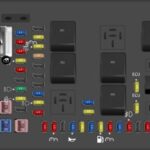For car enthusiasts looking to understand their vehicle’s performance, the On-Board Diagnostics II (OBD2) system has become an invaluable tool. Combined with user-friendly apps, OBD2 adapters can provide a wealth of data about your car’s operation. A common question among drivers is: does OBD2 tell 0 to 60 time? Let’s dive into how OBD2 can be used to measure your car’s acceleration and explore the capabilities of this technology.
The original poster recently experimented with a new OBD2 Bluetooth adapter and the Torque app on an Android phone to test their car’s 0-60 mph acceleration. They were particularly interested in seeing how accurate these tools could be in measuring performance metrics, especially given their car’s aftermarket cold air intake (CAI).
How OBD2 Measures 0-60 Time
Yes, OBD2 devices, when paired with the right software, can indeed measure your car’s 0-60 mph time. Here’s how it works:
- Accessing Vehicle Speed Data: The OBD2 system is connected to your car’s Engine Control Unit (ECU). The ECU constantly monitors various sensors throughout your vehicle, including the speed sensor. This speed data is transmitted through the OBD2 port.
- Real-time Data Acquisition: OBD2 adapters can read this real-time data from the ECU. When you use an app like Torque, it communicates with the OBD2 adapter to pull information, including vehicle speed.
- Calculating Acceleration: The app uses the speed data points it receives from the OBD2 adapter to calculate acceleration and time. By detecting when your car starts moving from a standstill (0 mph) and when it reaches 60 mph, the app can accurately measure the 0-60 mph time.
Real-World 0-60 Testing with OBD2 and Torque App
In a practical test, the user performed several 0-60 mph runs using the Torque app. They tested different driving modes to see how they affected acceleration times:
- Normal Mode: In standard driving mode, simply accelerating from a stop yielded consistent results of 7.0 seconds and 6.9 seconds.
- Sport Mode: Surprisingly, using sport mode resulted in a slightly slower time of 7.5 seconds, suggesting that for straight-line acceleration, standard mode might be more effective in this particular vehicle.
- Manual Shifting Attempt: An attempt to start in “first gear” and then quickly switch to automatic mode resulted in an 8.0-second time, indicating this method was not quicker, possibly due to the all-wheel-drive system or execution.
These tests demonstrate that OBD2, combined with an app like Torque, can provide repeatable 0-60 mph times, offering a convenient way to gauge your car’s acceleration performance.
Beyond 0-60: Unlocking More Performance Metrics
Measuring 0-60 time is just the tip of the iceberg when it comes to what OBD2 and apps like Torque can do. The user also explored other performance metrics, including:
- 40-60 mph Time: The app recorded a 40-60 mph time of 2.8 seconds, giving insights into mid-range acceleration.
- Horsepower and Torque Readings: The app estimated peak horsepower at 162.7 hp at 5588 rpm and torque at 172.5 (units unspecified) at 4875 rpm. While these are estimations based on user-inputted vehicle parameters like engine displacement and curb weight, they provide a ballpark figure for performance. The user acknowledged that for definitive figures, a dyno test would be necessary.
Furthermore, OBD2 systems can monitor a vast array of parameters, including:
- Fuel pressure
- Air-fuel ratio
- Oxygen sensor readings
- Various temperature readings
- Roll, pitch, and yaw of the vehicle
This wealth of data makes OBD2 tools incredibly versatile for both performance monitoring and vehicle diagnostics.
Accuracy and Convenience of OBD2 for 0-60 Measurement
The user concluded that the 0-60 mph times obtained through the OBD2 and Torque app were likely very accurate. They reasoned that since the system directly uses the car’s ECU speed data and precisely times the acceleration from a standstill, it should be highly reliable, potentially accurate to within a tenth or even a hundredth of a second.
For around $30 (cost of the adapter and app), this setup offers an affordable and convenient way to monitor various aspects of your car’s performance in real-time. It’s a valuable tool for any car enthusiast interested in understanding their vehicle better and tracking the impact of modifications.
Conclusion: OBD2 as a Performance Tool
So, does OBD2 tell 0 to 60 time? Yes, definitively. OBD2 adapters and apps like Torque provide a practical and relatively accurate method for measuring 0-60 mph times, along with a host of other performance and diagnostic data. For anyone curious about their car’s performance metrics or looking for an accessible way to monitor their vehicle’s health, an OBD2 adapter is an excellent investment. Whether you’re testing modifications or simply want to understand your car better, OBD2 tools offer valuable insights right at your fingertips.
